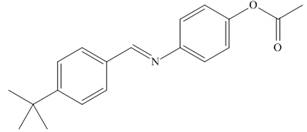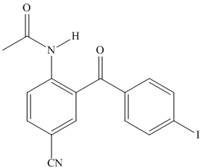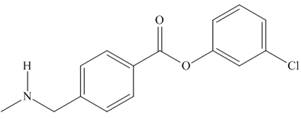
ORGANIC CHEMISTRY
5th Edition
ISBN: 9781259977596
Author: SMITH
Publisher: MCG
expand_more
expand_more
format_list_bulleted
Concept explainers
Textbook Question
Chapter 25, Problem 25.71P
Devise a synthesis of each compound from benzene, any organic alcohols having four carbons or fewer, and any required reagents.
a.  c.
c. 
b. 
Expert Solution & Answer
Want to see the full answer?
Check out a sample textbook solution
Students have asked these similar questions
Using Benzene as starting materid show
how each of the Following molecules Contel
Ve syntheswed
CHI
9.
b
-50311
с
CHY
503H
Ночто
d.
อ
•NOV
e
11-0-650
NO2
The molecule PYRIDINE,
6th electrons and is therefore aromatre
and is Assigned the Following structure
contering
Since aromatk moleculoy undergo electrophilic
anomatic substitution, Pyridine shodd undergo
The Following reaction
+ HNO3
12504
a. write all of the possible Mononitration Products
that could Result From this reaction
18. Bared upon the reaction mechanison determime
which of these producty would be the major
Product of the hegetion
a. Explain Why electron withdrawing groups
tend to be meta-Directors. Your answer Should
lyclude all apropriate. Resonance contributing
Structures
fo. Explain why -ll is an outho -tura
drccton even though chlorine has a very High
Electronegativity
Chapter 25 Solutions
ORGANIC CHEMISTRY
Ch. 25 - Prob. 25.1PCh. 25 - Prob. 25.2PCh. 25 - Prob. 25.3PCh. 25 - Prob. 25.4PCh. 25 - Prob. 25.5PCh. 25 - Prob. 25.6PCh. 25 - Problem 25.7
Draw the product of each...Ch. 25 - Prob. 25.8PCh. 25 - Prob. 25.9PCh. 25 - Prob. 25.10P
Ch. 25 - Prob. 25.11PCh. 25 - Prob. 25.12PCh. 25 - Prob. 25.13PCh. 25 - Prob. 25.14PCh. 25 - Prob. 25.15PCh. 25 - Prob. 25.16PCh. 25 - Prob. 25.17PCh. 25 - Problem 25.18
Write out steps to show how each of...Ch. 25 - Prob. 25.19PCh. 25 - Prob. 25.20PCh. 25 - Prob. 25.21PCh. 25 - Problem 25.22
Which nitrogen atom in each compound...Ch. 25 - Prob. 25.23PCh. 25 - Prob. 25.24PCh. 25 - Prob. 25.25PCh. 25 - Prob. 25.26PCh. 25 - Prob. 25.27PCh. 25 - Problem 25.28
Draw the major product formed in...Ch. 25 - Prob. 25.29PCh. 25 - Prob. 25.30PCh. 25 - Problem 25.31
Devise a synthesis of each compound...Ch. 25 - Prob. 25.32PCh. 25 - Problem 25.33
What starting materials are needed...Ch. 25 - Problem 25.34
(a) What two components are needed...Ch. 25 - Prob. 25.35PCh. 25 - Prob. 25.36PCh. 25 - 25.37 Varenicline (trade name Chantix) is a drug...Ch. 25 - Give a systematic or common name for each...Ch. 25 - Prob. 25.39PCh. 25 - 25.40 How many stereogenic centers are present in...Ch. 25 - 25.41 Rank the compounds in each group in order of...Ch. 25 - 25.42 Decide which atom in each molecule is most...Ch. 25 - 25.43 Explain why pyrimidine is less basic than...Ch. 25 - 25.44 Rank the nitrogen atoms in each compound in...Ch. 25 - 25.45 Explain why nitroaniline is a stronger base...Ch. 25 - 25.46 Explain the observed difference in the...Ch. 25 - 25.47 Why is pyrrole more acidic than...Ch. 25 - Prob. 25.48PCh. 25 - Prob. 25.49PCh. 25 - Prob. 25.50PCh. 25 - 25.51 How would you separate toluene , benzoic...Ch. 25 - 25.52 Draw the products formed when methylaniline ...Ch. 25 - Prob. 25.53PCh. 25 - Prob. 25.54PCh. 25 - 25.55 Draw the organic products formed in each...Ch. 25 - Prob. 25.56PCh. 25 - 25.57 Identify A, B, and C, three intermediates in...Ch. 25 - Prob. 25.58PCh. 25 - Prob. 25.59PCh. 25 - 25.60 A chiral amine A having the configuration...Ch. 25 - 25.61 Draw a stepwise mechanism for each...Ch. 25 - 25.62 Draw a stepwise mechanism for the following...Ch. 25 - Prob. 25.63PCh. 25 - 25.64 Tertiary aromatic amines react with and ...Ch. 25 - 25.65 Devise a synthesis of each compound from...Ch. 25 - Prob. 25.66PCh. 25 - Prob. 25.67PCh. 25 - Prob. 25.68PCh. 25 - Prob. 25.69PCh. 25 - 25.70 Devise a synthesis of each biologically...Ch. 25 - 25.71 Devise a synthesis of each compound from...Ch. 25 - 25.72 Three isomeric compounds A, B, and C, all...Ch. 25 - 25.73 Treatment of compound D with LiAlH4 followed...Ch. 25 - Prob. 25.74PCh. 25 - 25.75 Rank the following compounds in order of...Ch. 25 - Prob. 25.76PCh. 25 - Prob. 25.77PCh. 25 - Prob. 25.78P
Knowledge Booster
Learn more about
Need a deep-dive on the concept behind this application? Look no further. Learn more about this topic, chemistry and related others by exploring similar questions and additional content below.Similar questions
- 9. Write Me product as well as the reaction Mechanism For each of the Following Vanctions +H₂504 4.50+ T C. +212 Fellz 237 b. Praw the potential energy Diagrams For each OF Mese Rauctions and account For any differences that appear in the two potential Puergy Diagrams which of here two reactions 19 Found to be Reversable, Rationalice your answer based upon the venation mechanisms and the potential energy diagrams.arrow_forward9. Write Me product as well as the reaction Mechanism For each of the Following Veritious +H2504 4.50+ + 1/₂ Felly ◎+ 7 b. Praw he potential energy Diagrams For each OF Mese Ronctions and account for any differences that appeak in the two potential Puergy Diagramsarrow_forwardDraw the major product of this reaction. Ignore inorganic byproducts. Incorrect, 3 attempts remaining 1. excess Br2, NaOH 2. neutralizing workup Qarrow_forward
- Given the electrode Pt | Ag | Ag+ (aq), describe it.arrow_forwardAt 25°C, the reaction Zn2+ + 2e ⇄ Zn has a normal equilibrium potential versus the saturated calomel electrode of -1.0048 V. Determine the normal equilibrium potential of Zn versus the hydrogen electrode.Data: The calomel electrode potential is E° = 0.2420 V versus the normal hydrogen electrode.arrow_forwardElectrochemistry. State the difference between E and E0.arrow_forward
- In an electrolytic cell, the positive pole is always assumed to be on the right side of the battery notation. Is that correct?arrow_forwardIn an electrolytic cell, the positive pole is always assumed to be on the right side of the battery. Is that correct?arrow_forwardCalculate the free energy of formation of 1 mol of Cu in cells where the electrolyte is 1 mol dm-3 Cu2+ in sulfate solution, pH 0. E° for the Cu2+/Cu pair in this medium is +142 mV versus ENH.Assume the anodic reaction is oxygen evolution.Data: EH2 = -0.059 pH (V) and EO2 = 1.230 - 0.059 pH (V); 2.3RT/F = 0.059 Varrow_forward
- If the normal potential for the Fe(III)/Fe(II) pair in acid at zero pH is 524 mV Hg/Hg2Cl2 . The potential of the saturated calomel reference electrode is +246 mV versus the NHE. Calculate E0 vs NHE.arrow_forwardGiven the galvanic cell whose scheme is: (-) Zn/Zn2+ ⋮⋮ Ag+/Ag (+). If we know the normal potentials E°(Zn2+/Zn) = -0.76V and E°(Ag+/Ag) = 0.799 V. Indicate the electrodes that are the anode and the cathode and calculate the E0battery.arrow_forwardIndicate the functions that salt bridges have in batteries.arrow_forward
arrow_back_ios
SEE MORE QUESTIONS
arrow_forward_ios
Recommended textbooks for you
 ChemistryChemistryISBN:9781305957404Author:Steven S. Zumdahl, Susan A. Zumdahl, Donald J. DeCostePublisher:Cengage Learning
ChemistryChemistryISBN:9781305957404Author:Steven S. Zumdahl, Susan A. Zumdahl, Donald J. DeCostePublisher:Cengage Learning ChemistryChemistryISBN:9781259911156Author:Raymond Chang Dr., Jason Overby ProfessorPublisher:McGraw-Hill Education
ChemistryChemistryISBN:9781259911156Author:Raymond Chang Dr., Jason Overby ProfessorPublisher:McGraw-Hill Education Principles of Instrumental AnalysisChemistryISBN:9781305577213Author:Douglas A. Skoog, F. James Holler, Stanley R. CrouchPublisher:Cengage Learning
Principles of Instrumental AnalysisChemistryISBN:9781305577213Author:Douglas A. Skoog, F. James Holler, Stanley R. CrouchPublisher:Cengage Learning Organic ChemistryChemistryISBN:9780078021558Author:Janice Gorzynski Smith Dr.Publisher:McGraw-Hill Education
Organic ChemistryChemistryISBN:9780078021558Author:Janice Gorzynski Smith Dr.Publisher:McGraw-Hill Education Chemistry: Principles and ReactionsChemistryISBN:9781305079373Author:William L. Masterton, Cecile N. HurleyPublisher:Cengage Learning
Chemistry: Principles and ReactionsChemistryISBN:9781305079373Author:William L. Masterton, Cecile N. HurleyPublisher:Cengage Learning Elementary Principles of Chemical Processes, Bind...ChemistryISBN:9781118431221Author:Richard M. Felder, Ronald W. Rousseau, Lisa G. BullardPublisher:WILEY
Elementary Principles of Chemical Processes, Bind...ChemistryISBN:9781118431221Author:Richard M. Felder, Ronald W. Rousseau, Lisa G. BullardPublisher:WILEY

Chemistry
Chemistry
ISBN:9781305957404
Author:Steven S. Zumdahl, Susan A. Zumdahl, Donald J. DeCoste
Publisher:Cengage Learning

Chemistry
Chemistry
ISBN:9781259911156
Author:Raymond Chang Dr., Jason Overby Professor
Publisher:McGraw-Hill Education

Principles of Instrumental Analysis
Chemistry
ISBN:9781305577213
Author:Douglas A. Skoog, F. James Holler, Stanley R. Crouch
Publisher:Cengage Learning

Organic Chemistry
Chemistry
ISBN:9780078021558
Author:Janice Gorzynski Smith Dr.
Publisher:McGraw-Hill Education

Chemistry: Principles and Reactions
Chemistry
ISBN:9781305079373
Author:William L. Masterton, Cecile N. Hurley
Publisher:Cengage Learning

Elementary Principles of Chemical Processes, Bind...
Chemistry
ISBN:9781118431221
Author:Richard M. Felder, Ronald W. Rousseau, Lisa G. Bullard
Publisher:WILEY
Nomenclature: Crash Course Chemistry #44; Author: CrashCourse;https://www.youtube.com/watch?v=U7wavimfNFE;License: Standard YouTube License, CC-BY